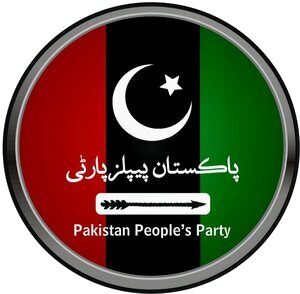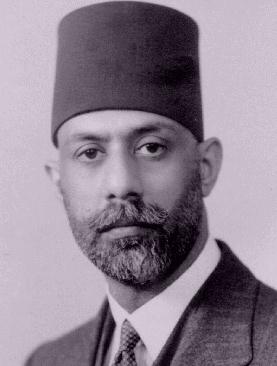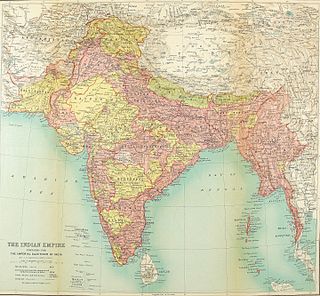Related Research Articles

West Pakistan was the western province of Pakistan between 1955 and 1970, covering the territory of present-day Pakistan. Its land borders were with Afghanistan, India and Iran, with a maritime border with Oman in the Gulf of Oman in the Arabian Sea.

The Pakistan People's Party is a centre-left political party in Pakistan, currently being the largest in the Senate and second-largest party in the National Assembly. The party was founded in 1967 in Lahore, when a number of prominent left-wing politicians in the country joined hands against the rule of Ayub Khan, under the leadership of Zulfikar Ali Bhutto. It is affiliated with the Socialist International. The PPP's platform was formerly socialist, and its stated priorities continue to include transforming Pakistan into a social-democratic state, promoting egalitarian values, establishing social justice, and maintaining a strong military. It, alongside the Pakistan Muslim League-Nawaz and the Pakistan Tehreek-e-Insaf, is one of the three largest political parties of Pakistan.

The administrative units of Pakistan comprise four provinces, one federal territory, and two disputed territories: the provinces of Punjab, Sindh, Khyber Pakhtunkhwa, and Balochistan; the Islamabad Capital Territory; and the administrative territories of Azad Jammu and Kashmir and Gilgit–Baltistan. As part of the Kashmir conflict with neighbouring India, Pakistan has also claimed sovereignty over the Indian-controlled territories of Jammu and Kashmir and Ladakh since the First Kashmir War of 1947–1948. It also has a territorial dispute with India over Junagadh, but has never exercised administrative authority over either regions. All of Pakistan's provinces and territories are subdivided into divisions, which are further subdivided into districts, and then tehsils, which are again further subdivided into union councils.

Liaquat Ali Khan was a Pakistani lawyer, politician and statesman who served as the first prime minister of Pakistan from 1947 until his assassination in 1951. He was as pivotal to the consolidation of Pakistan as the Quaid-i-Azam, Muhammad Ali Jinnah, was central to the creation of Pakistan. He was one of the leading figures of the Pakistan Movement and is revered as Quaid-e-Millat and later on as "Shaheed e Millat".

Choudhry Rahmat Ali was a Pakistani nationalist activist who was one of the earliest proponents of the creation of the state of Pakistan. He is credited with creating the name "Pakistan" for a separate Muslim homeland in British India and is generally known as the originator of the Pakistan Movement.

The Pakistan Movement emerged in the early 20th century as part of a campaign that advocated the creation of an Islamic state in parts of what was then British India. It was rooted in the two-nation theory, which asserted that Indian Muslims were fundamentally and irreconcilably distinct from Indian Hindus and would therefore require separate self-determination upon the decolonization of India. The idea was largely realized when the All-India Muslim League ratified the Lahore Resolution on 23 March 1940, calling for the Muslim-majority regions of the Indian subcontinent to be "grouped to constitute independent states" that would be "autonomous and sovereign" with the aim of securing Muslim socio-political interests vis-à-vis the Hindu majority. It was in the aftermath of the Lahore Resolution that, under the aegis of Muhammad Ali Jinnah, the cause of "Pakistan" became widely popular among the Muslims of the Indian independence movement.

Larkana is a city located in the Sindh province of Pakistan. It is the 15th largest city of Pakistan by population. It is home to the Indus Valley civilization site Mohenjo-daro. The historic Indus River flows in east and south of the city.

Khairpur District is a district in the Pakistani province of Sindh in Sukkur Division.

Wazir Mansion, officially known as Quaid-e-Azam Birthplace Museum is a former family home in the Kharadar district South at Karachi, Sindh, Pakistan which is considered the birthplace of the country's founder, Muhammad Ali Jinnah.

Muhamad Yusuf Khan Khattak was a Pakistani politician, left-wing intellectual, lawyer, and noted Pakistan Movement activist from Khyber Pakhtunkhwa.

East Bengal was the eastern province of the Dominion of Pakistan, which covered the territory of modern-day Bangladesh. It consisted of the eastern portion of the Bengal region, and existed from 1947 until 1955, when it was renamed as East Pakistan. East Bengal had a coastline along the Bay of Bengal to the south, and bordered India to the north, west, and east and shared a small border with Burma to the southeast. It was situated near, but did not share a border with Nepal, Tibet, the Kingdom of Bhutan and the Kingdom of Sikkim. Its capital was Dacca, now known as Dhaka.
Mumtaz Ali Khan Bhutto, was a Pakistani politician who served as 8th Governor of Sindh and later the 13th Chief Minister of Sindh. He was also the first cousin of late Zulfiqar Ali Bhutto, who was the Prime Minister of Pakistan from 1973 to 1977.

The One Unit Scheme was the reorganisation of the provinces of Pakistan by the central Pakistani government. It was led by Prime Minister Muhammad Ali Bogra on 22 November 1954 and passed on 30 September 1955. The government claimed that the programme would overcome the difficulty of administering the two unequal polities of West and East Pakistan separated from each other by more than a thousand miles. To diminish the differences between the two regions, the 'One Unit' programme merged the four provinces of West Pakistan into a single province to parallel the province of East Pakistan.

The "Pakistan Declaration" was a pamphlet written and published by Choudhry Rahmat Ali, on 28 January 1933, in which the word Pakstan was used for the first time and was circulated to the delegates of the Third Round Table Conference in 1933.
Alikhil,speni oba, malm Jaba, Swat Pakistan
Syed Muhammad Ali Shah was a Pakistani orthopaedic surgeon and member of the Pakistan Cricket Board governing board. He was the Provincial Sports Minister of Sindh. He was also the Chief de Mission for Pakistani athletes in the Commonwealth Games 2010.
Ghulam Ali is a Muslim male given name. In Persian, it is transliterated as Gholam Ali. It may refer to:
Buchheri Railway Station is located in Buchheri small town in sub-district Daur, Shaheed Benazir Abad district Sindh province of Pakistan. In 2015 Buchheri has been declared town committee. Baalu Ja Qubba is located in Buchheri, where father & mother of former president of Pakistan Asif Ali Zardari are buried in graveyard of Baalu Ja Qubba. Dr. Ghulam Mustafa Abbasi, former Director General Health Government Of Sindh is also from a small village Allah Bux near Buchheri.
Shaheed Haider Ali Railway Station is located in Walhar village, Sadiqabad Tehsil of Punjab province, Pakistan. The station was initially named as Walhar Railway Station. However, its name was changed to Shaheed Haider Ali Railway station in September 2023 as a tribute to a brave railway employee Haider Ali, who got martyred fighting off terrorists who were trying to damage the railway track and derail incoming trains near the Railway station.

The Balochistan Awami Party is a political party based in the Balochistan province of Pakistan founded in 2018 by political dissidents of the Pakistan Muslim League (N) and the Pakistan Muslim League (Q) in Balochistan.
References
- ↑ Anṡārī ʻAlī Sher ʻAlī (1901). A Short Sketch, Historical and Traditional, of the Musalman Races Found in Sind, Baluchistan and Afghanistan, Their Genealogical Sub-divisions and Septs, Together with an Ethnological and Ethnographical Account. Commissioner's Press.